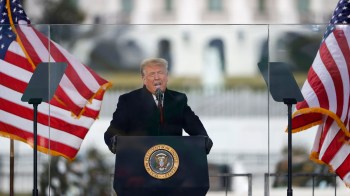How a CEO prepares for Senate testimony
David Brancaccio: The CEO of JP Morgan-Chase has been summoned to Capitol Hill today to face questions about his banks multi-billion dollar loss on bets in financial markets that went bad. According to his prepared remarks, Dimon will apologize, saying he feels quote “terrible” about the blunder.
For more we turn to Michele Davis, a former Treasury Department spokesperson who’s now a partner at Brunswick, a communications consulting firm. Ms. Davis, good morning.
Michele Davis: Good morning, how are you?
Brancaccio: I’m doing well, thank you. How does a CEO or really anyone else prepare for a grilling on Capitol Hill like this? Is this a toughie?
Davis: These are tough to prepare for because they are so different from what a CEO normally faces. The key thing in a hearing like this is to constantly remember that it’s the senators show and they’re there to make a point. The fastest way out of the room is to let them score their points and move on.
Brancaccio: Now, indications about what Mr. Dimon will say will include some pretty big mea culpa’s.
Davis: Yeah, you know, he’s taking the right posture of not pushing back, not creating an argument. What the senators will probably want to do is look to make points about policy. The fact is most Americans don’t like bankers and don’t have a lot of confidence necessarily that what works on Wall St. works for them. That’s the purpose of the hearing — to create that moment, demonize Wall St. a little bit in order to advance the regulatory agenda.
Brancaccio: Is it fair to say there is a central point of disagreement, which is Jamie Dimon’s point of view is that what happened at his bank didn’t endanger the financial system. I think some of the senators are concerned that it was an indication that stuff like this could endanger the financial system.
Davis: I think the system is much stronger now than it was in 2008 and we want a financial system where banks — if they do suffer losses — it doesn’t create havoc for the rest of the financial system. In that sense, we haven’t seen anything systemic resulting from this issue at JPMorgan.
Brancaccio: Michele Davis, former spokesperson for the U.S. Treasury Department, thank you very much.
Davis: Thank you.
There’s a lot happening in the world. Through it all, Marketplace is here for you.
You rely on Marketplace to break down the world’s events and tell you how it affects you in a fact-based, approachable way. We rely on your financial support to keep making that possible.
Your donation today powers the independent journalism that you rely on. For just $5/month, you can help sustain Marketplace so we can keep reporting on the things that matter to you.


















